Annual Report 2020
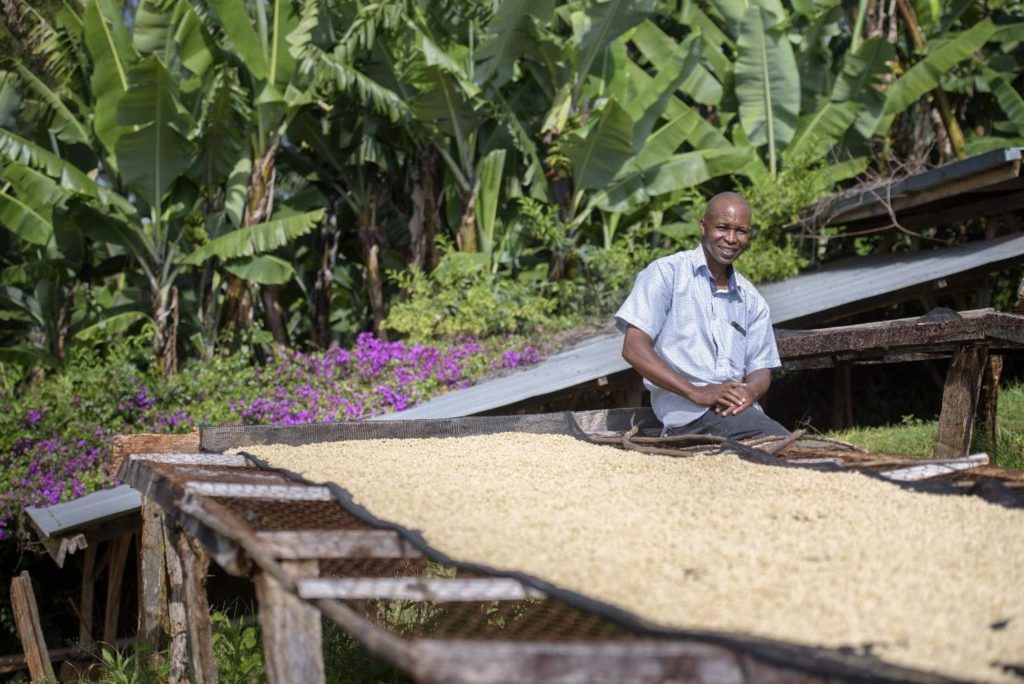
Highlights
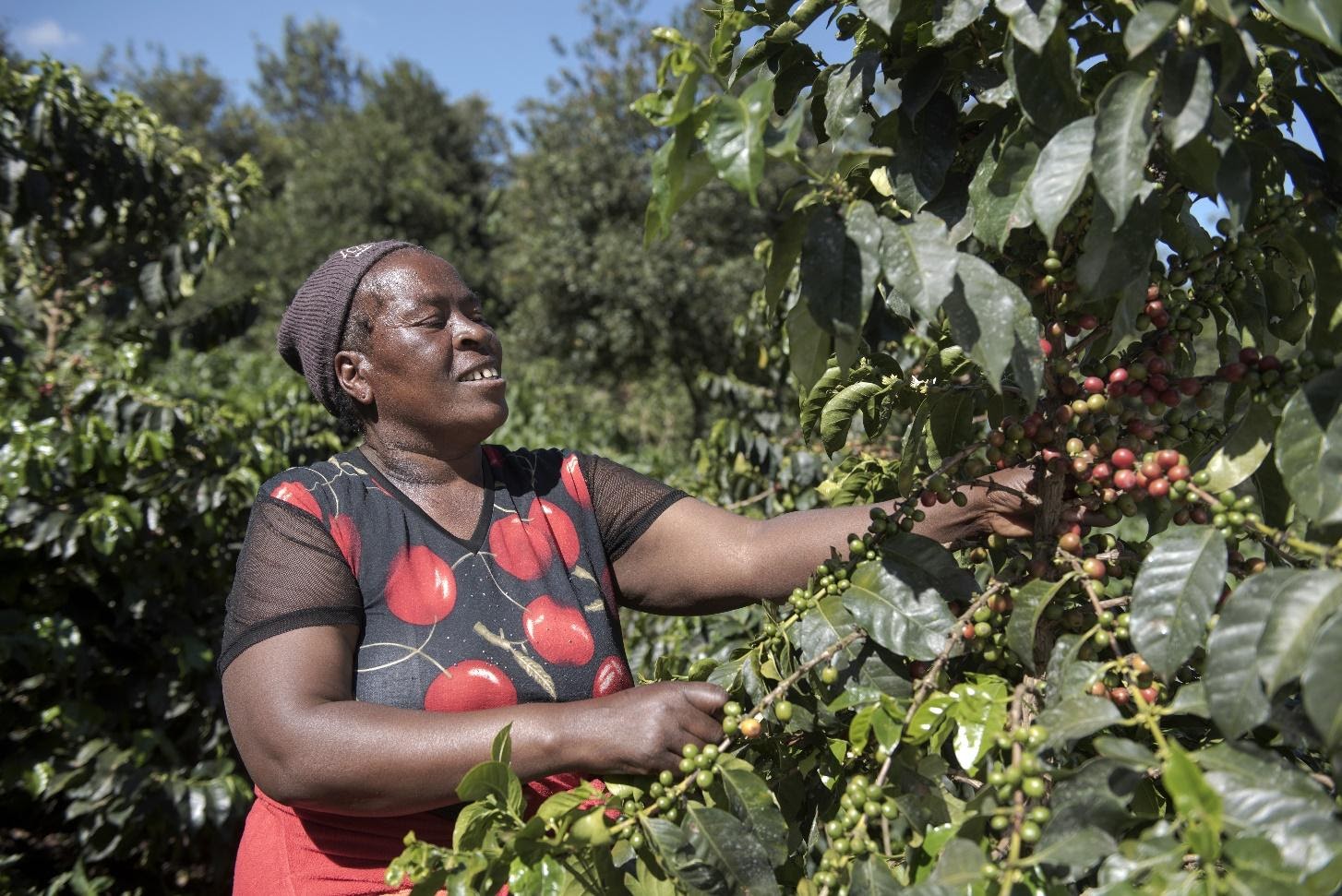
Coffee
Increased coffee production in Kenya from an average of 2.2 to 3.5 kg of cherry yield per tree in 2019/20 as a result of increased adoption of good practices promoted by the PfC Coffee Resilience program coupled with timely access to inputs, services and knowledge.
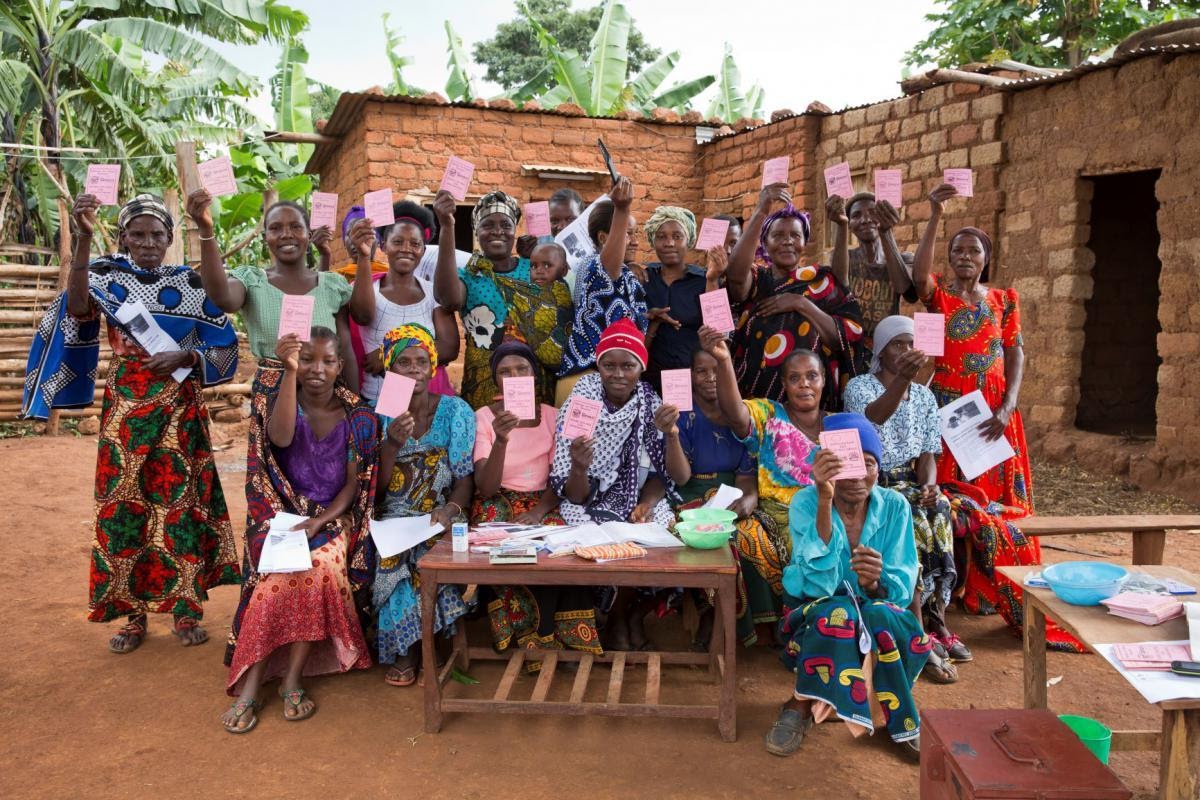
Coffee and financial inclusion
Increased access to finance for more than 7,500 coffee farmers as a result of the establishment of 300 village savings and loans associations (VSLA) in Uganda, Tanzania and Kenya. By the end of the year, the VSLA had mobilized and disbursed upto Euros 225,000 to members.
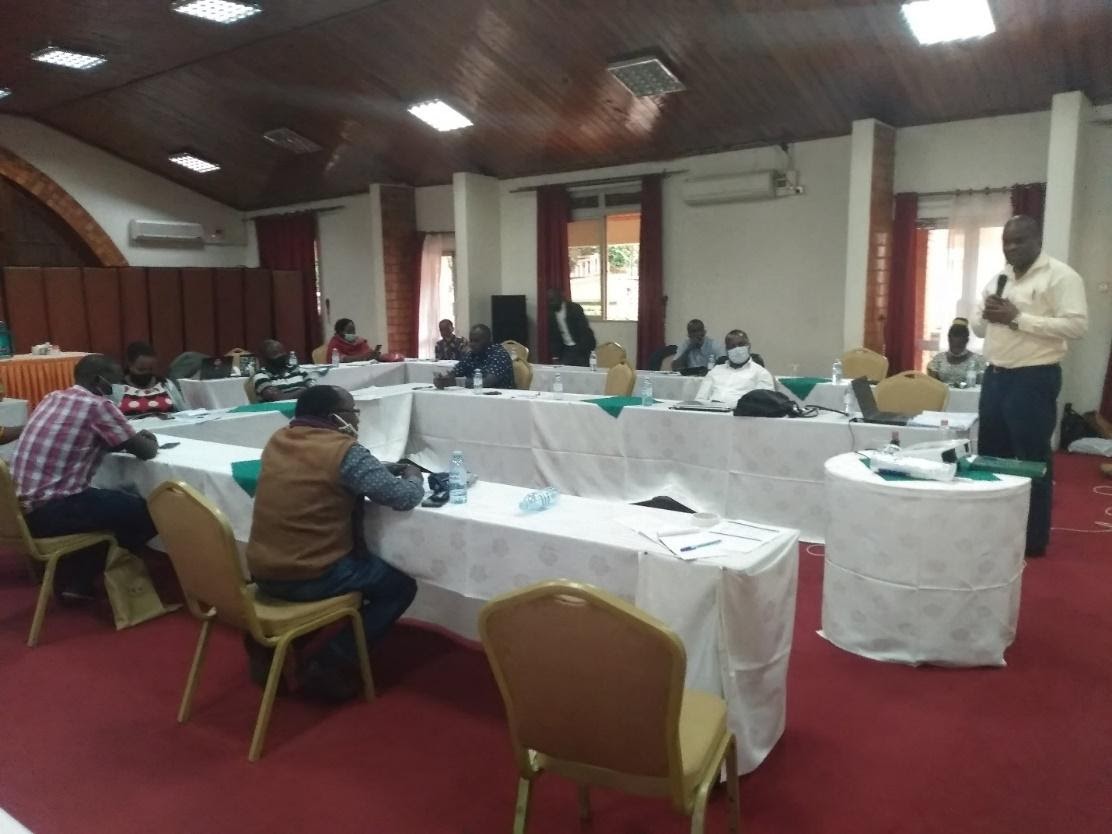
Tea
In Uganda, we supported finalization and dissemination of key national tea documents, particularly the National Tea Policy, National Tea Policy Implementation Plan, and Regulatory Impact Assessment. The National Implementation Plan was agreed and finalized, and is awaiting review by the Cabinet – Ministry of Agriculture, Animal Industry and Fisheries. We also conducted a feasibility study on low carbon tea which informed investment in global carbon sequestration in Uganda. We hope to be able to link farmers with carbon credit mechanisms for them to enjoy additional benefits.
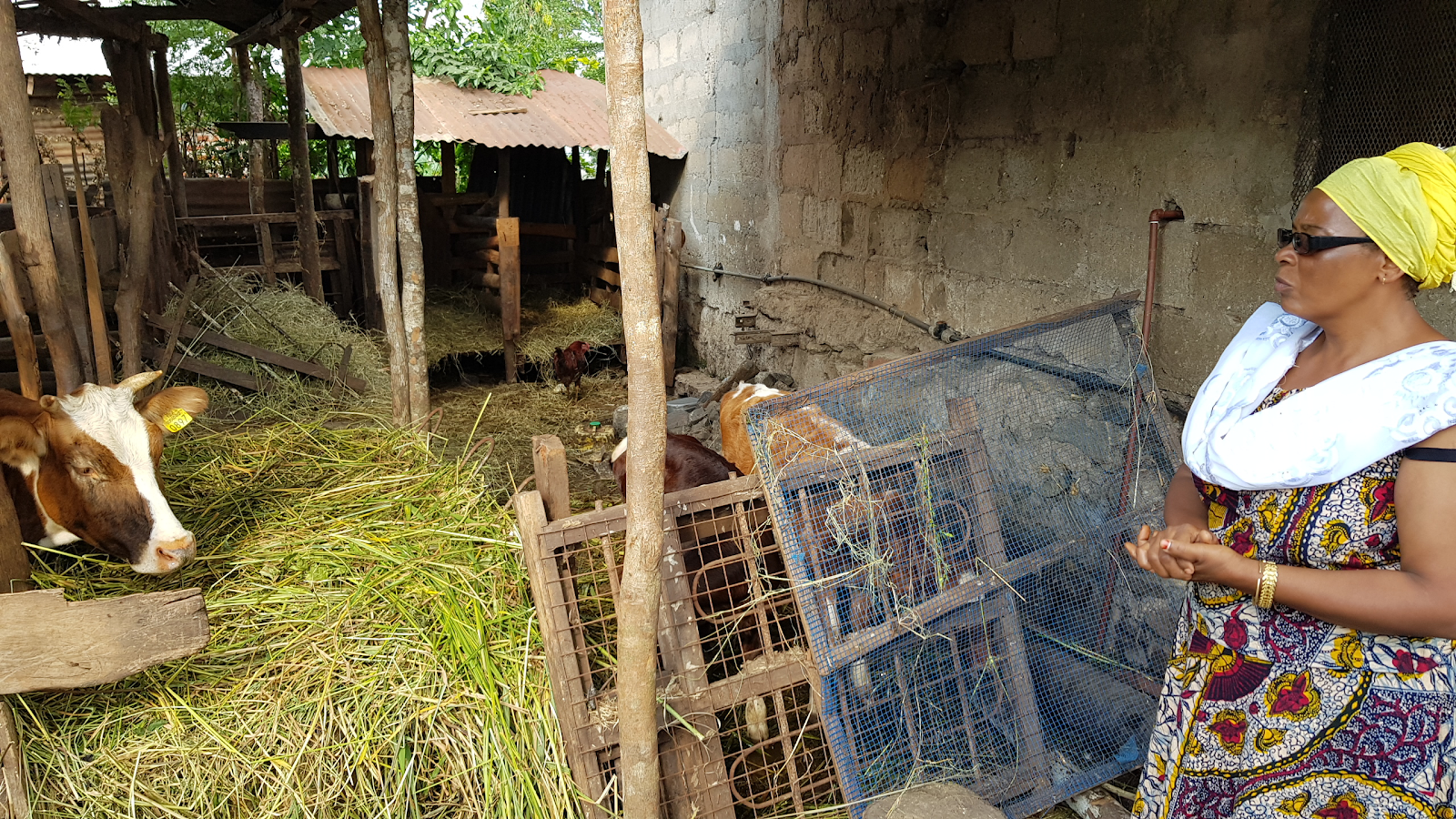
Livestock and leather
Visited a total of 425 farms in Tanzania and dairy farmers educated on various topics including calf rearing, heat detection, proper feeding of dairy cows, formulation of home-made ration, fodder growing, management and storage, record keeping, animal health and herd projections. In Ethiopia, we achieved a 17 percent reduction in the rejection rates of hides and skins from slaughterhouses. The improvement in quality of hides and skins is attributed to training and routine follow up on reduction of defects, such as deformation, holes, and knife cuts, targeting slaughterhouses.
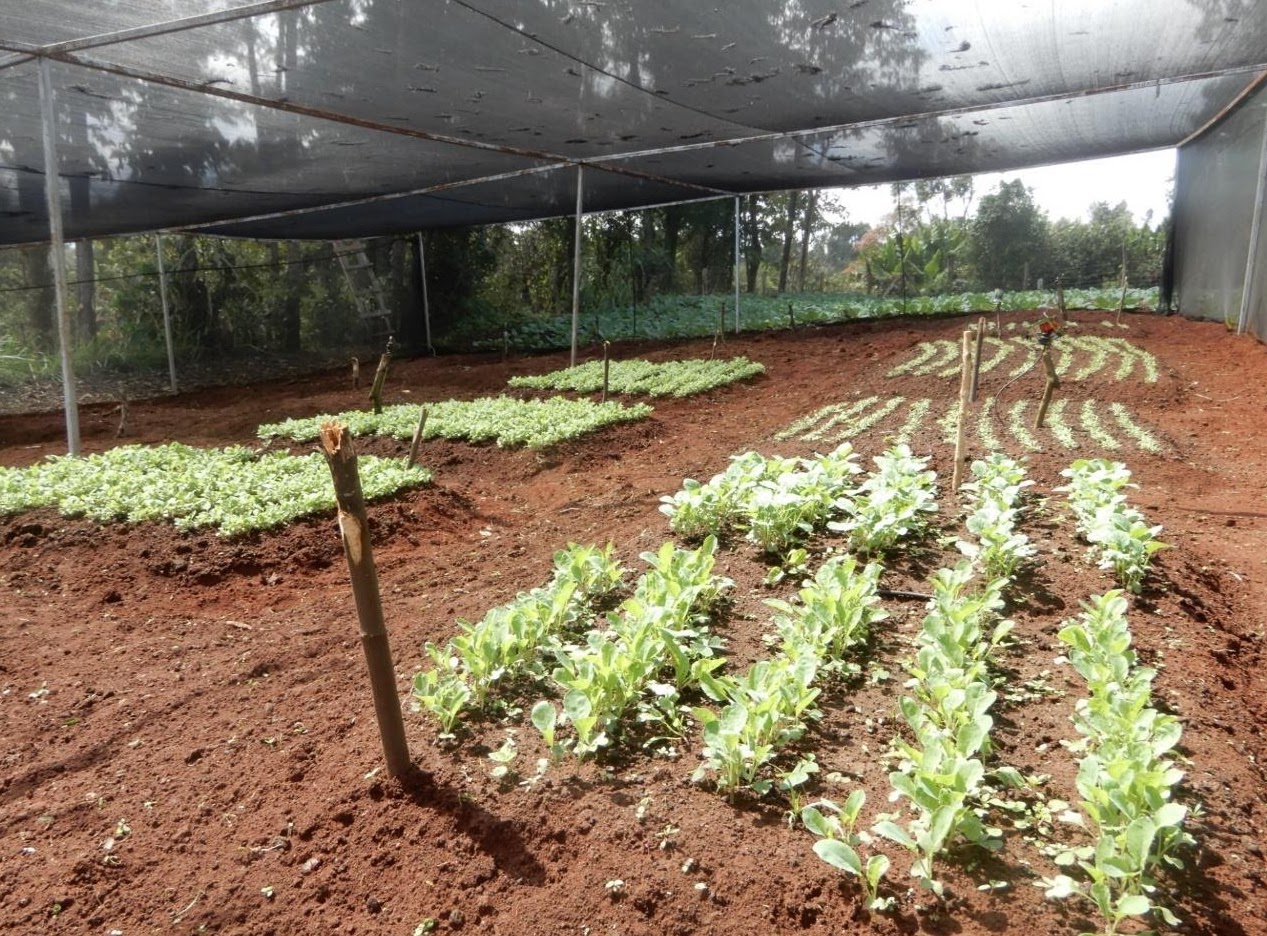
Fruit & vegetables
Through the nurseries established under the Food for All Project in Kenya provided more than 500 youth and women with employment and livelihood opportunities through production of banana, fruit and vegetable seedlings for sale to other farmers. A total of 405,635 assorted vegetable, fruit, and tree seedlings valued at Euros 5,951 were produced and sold by the nurseries in 2020.

Cotton & textiles
832 small-scale cotton farmers mobilized under Dansha Union in Ethiopia and supported to produce more than 600 tonne seed cotton (400ha of cotton), an increase of 375% compared to the previous season. Overall decrease in work-related injuries among the 20 beneficiary factories reported – 10 factories reported zero injuries, while 10 factories reported 50% decrease in injuries and incidents.
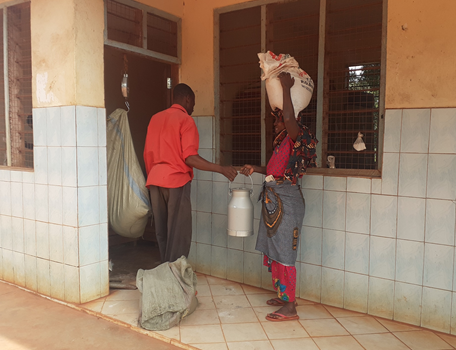
Diary
8,914,329 litres of milk aggregated and sold through the five dairy hubs under the Food for All Project in Kenya. The dairy hubs achieved 85% of the targeted milk volumes. By the end of the project in December, the cumulative volume of milk aggregated had reached 33,274,056 litres.
Overall increase in milk production from an average of 2-4 to 6-8 litres (per cow/daily) recorded by farmers as a result of improved access to services, fodder supplies and farm management support provided through the Dairy 2025: Catalyst for business driven and climate smart dairy farming in Tanga project in Tanzania.
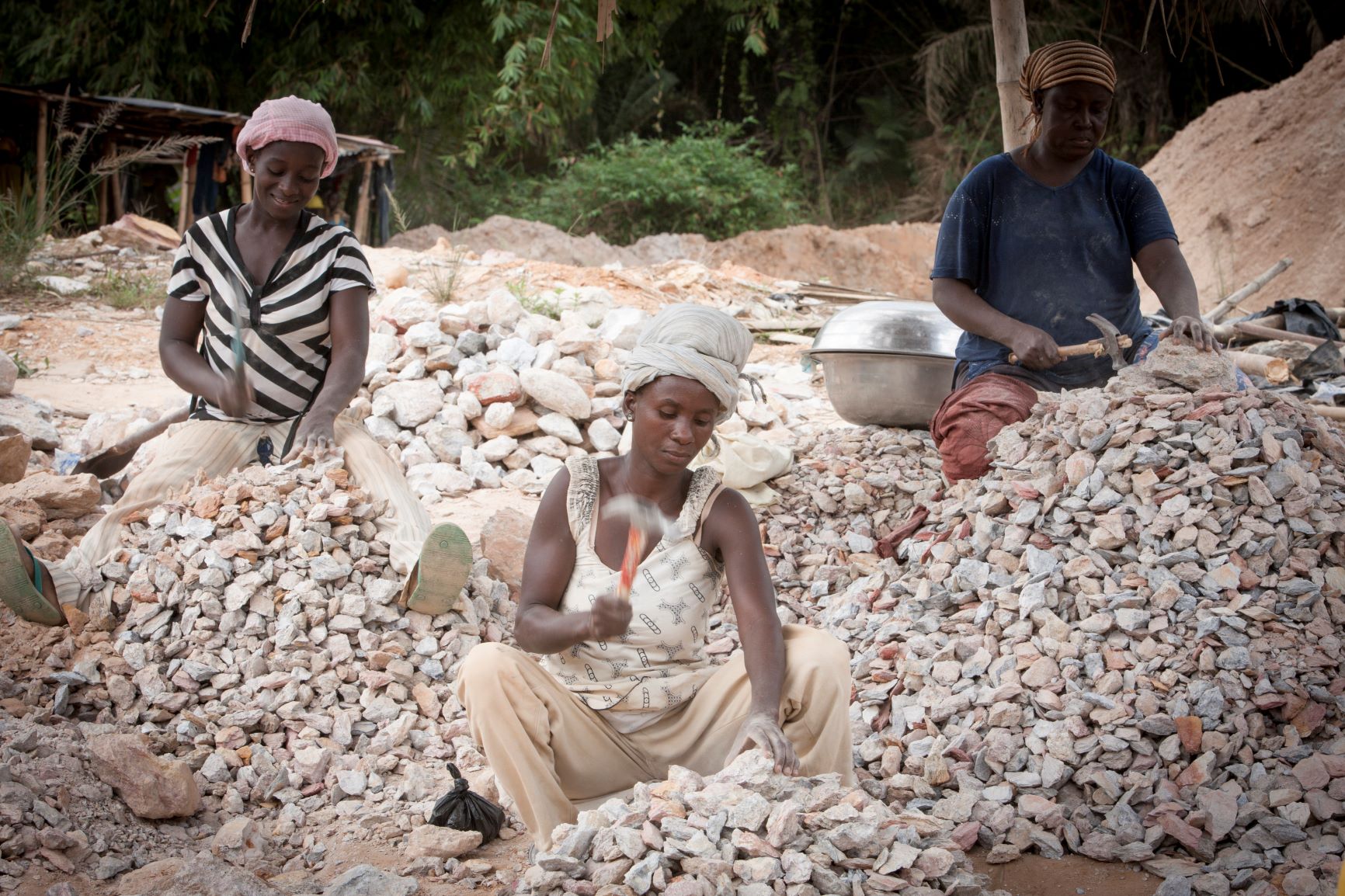
ASM Gold
15 artisanal gold mines in Tanzania reported improved adoption of procedures in line with the environmental, social, and governance performance criteria, scoring between basic (service entry criteria) and advanced (preliminary certification criteria).
Results
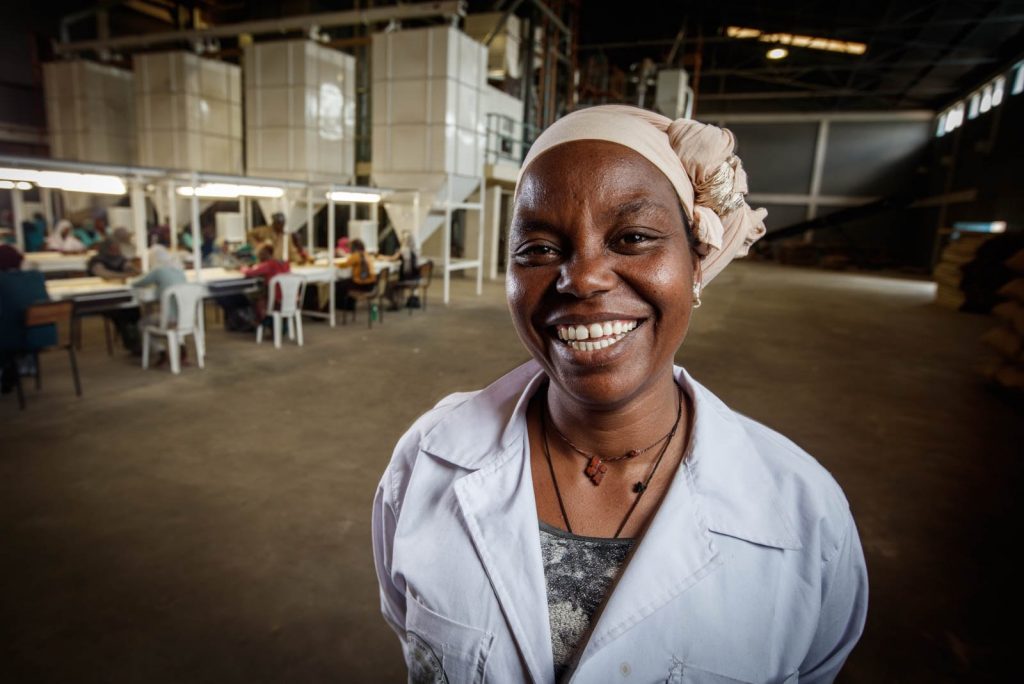
A deep dive
Delivering impact
In 2020 we continued and closed a number of major programmes, involving stakeholders across sectors and countries. The fruition of these efforts was a testament to the creativity and commitment of team members and smallholder farmers and miners, and lays the groundwork for even greater impact in the coming years.
The cumulative number of smallholder coffee farmers and workers trained in good agricultural practices (GAPs) reached 22,663. Our ‘PfC Coffee Resilience’ program recorded a 35.3 percent (15,099 farmers) increase in adoption of GAPs during the year. Findings from our impact assessment study revealed that the overall uptake of GAPs was at 67 percent with the targeted coffee farmers implementing at least one climate smart practice. The average cherry yields per tree increased from 2.2kg during the baseline season (2017/18) to 3.5kg in the 2019/20 season. This was attributed to the increasing adoption of good practices coupled with timely access to inputs, services, and knowledge also provided by Solidaridad and its partners. An additional 9,263 farmers were trained through our Food for All Project in Kenya bringing the cumulative figure to 85,814 farmers (64 percent women). Of the total farmers trained, 65% were reported to have adopted at least 3 technologies (e.g. terracing, mulching, crop rotation) in crop and dairy production. To ensure continuity in GAPs implementation during the Covid-19 pandemic, we used digital solutions to enable more farmers access real-time information on farming performance, markets, inputs, finances, and extension services. Bulk SMS services were deployed to share important extension messages and follow up with more than 7,880 farmers in the region. In Ethiopia, more than 400 cotton farmers received training on GAPs, integrated pest management, pest scouting, and weed management.
Through the FOSEK project, we supported the establishment of 11 coffee and food crops nurseries in Kenya bringing the cumulative number of nurseries under the project to 33 (21 in Kenya and 11 in Ethiopia). A total of 1,284,795 seedlings (534, 055 in Kenya and 750,740 in Ethiopia) were raised and distributed; benefitting 2,838 smallholder coffee farmers among them 838 women and youth. To enhance competitiveness of the previously established dairy hubs, FOSEK also provided dairy hubs with various equipment namely; two batch milk pasteurizers, 11 Milk ATMS and two feed mixers/millers. By the end of the year, the volume of milk aggregated through each dairy had increased to 2,500 litres per day.Through our existing project portfolio in East Africa, we also supported different beneficiaires to fully operationalize previously installed hardwares, including, dairy hubs and dairy collection centres, nurseries, and demonstration sites. Among the key results realized were 8,914,329 litres of milk aggregated through five cooperatives under the Food for All Project in Kenya. In Tanzania, the Dairy 2025 project supported Mruazi dairy hub to acquire machinery to improve efficiencies in harvesting hay. The hub harvested a total of 9,789 bales of improved quality hay as a result.
Under the ‘Enabling Policy Influencing for Improved Livelihoods’ project, we supported finalization and dissemination of key national tea documents, particularly the National Tea Policy, National Tea Policy Implementation Plan, and Regulatory Impact Assessment. The National Implementation Plan was agreed and finalized, and is awaiting review by Cabinet. In Tanzania, Solidaridad lobbied the Ministry of Mining to review the process of gold mining licensing. Women have been excluded from this process as the requirements necessitate land ownership. The Ministry has verbally committed to review this process and make it more gender inclusive. Solidaridad will continue to provide gender mainstreaming recommendations to the Ministry. The end-term evaluation of the ‘Golden Line’ programme concluded that the outcomes harvested from our advocacy work are significant, credible, and supportive of the adjustment of the Tanzania Mineral Policy of 1998. Through linkages with high level government authorities, the Sustainable Landscapes Innovation project in Tanzania also did a good job in enhancing implementation of the Land Use Planning Act, No. 6 of 2007, as a result the project management team was invited to participate in a parliament session on reviewing plans and budget of the Ministry of Land, Houses, and Settlement development. This was an opportunity to raise awareness on the project activities at a parliament level.
To promote sustainable landscapes we have supported pilots to demonstrate best practices for natural resources and sustainable landscape management. Our pilots were anchored on key themes – i.e. GAPs, agroforestry, beekeeping, land-use planning, rangeland management, community forest management, and aquaculture. Our approach provided communities within the Kilimanjaro ecosystem with practical lessons on activities that contribute to improvement of ecosystems. In total, more than 10,000 people were reached directly through our pilot model which covers 57,315.58ha – including 894.35ha of community forest land, 53.23ha of two smart villages, 56,418ha in three villages that adopted land-use planning, and 3,23ha of rangelands. To ensure the sustainability and legacy of the ‘Sustainable Landscapes Innovation’ project, we considered the critical role of involving all community members, CSOs, and other stakeholders. Particularly, the multi-stakeholder platforms at village, district, and national level facilitated capacity building, information sharing, and meaningful involvement of all stakeholders (including, women). Among the key results was improved decision making at community level, ownership, and income generation through pilot activities. Illaunock Loormittii, one of the pilot groups generated a total of Tsh 4,700,000 (about Euros 1,685). The income was used to purchase 19 improved goat breeds for 19 households and establish a nursery. An additional 9 goats will be purchased for the households in 2021. Similarly, the bee-keeping pilot was scaled up by the Tanzania Social Action Fund which provided an additional 100 hives to support the scaling of the pilot.
Innovation Areas
Results
Transformative change
Across each innovation area, we engaged experts, and smallholders themselves, to drive real change and deliver programme results. Integrating each of these areas also meant cross pollination of impact, such as integrating a gender lens in impact investing, or bringing digital into new programmes.
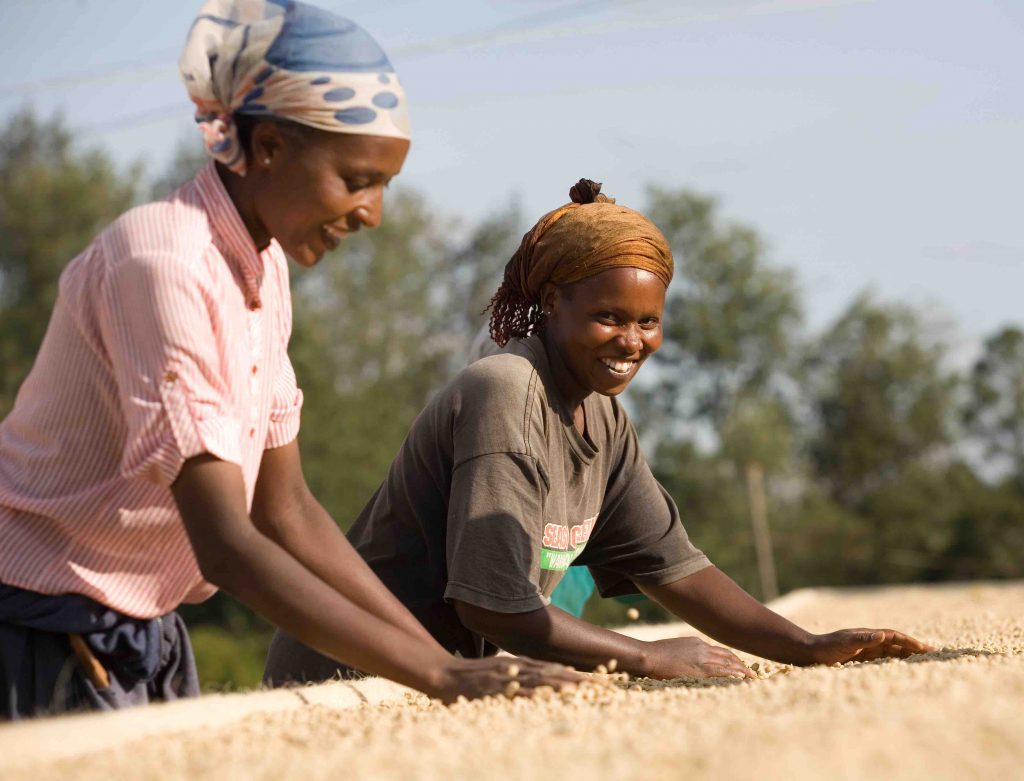
As part of our human-centred design approach, Solidaridad East & Central Africa integrates context-specific gender mainstreaming approaches at an organizational and programmatic level. In 2020, we developed and deployed an institutional assessment tool to inform the development of our 2021 gender mainstreaming roadmap. Key staff received targeted training on well-known gender methodologies to enhance seamless implementation at project level. As a result, our projects applied these methodologies, Gender Action and Learning System (GALS) and Economic and Social Empowerment (EA$E) to champion for much-needed changes to gender inclusivity policies and community behaviour within local agricultural and mining communities. Through our ‘PfC Coffee Resilience’ program, we reached more than 3,840 women using innovative models to overcome typical barriers for women participation in the coffee value chain. The women benefited from access to productive resources, improved decision making processes at the household level and improved representation at various forums. More than 10 women were incorporated in the boards of management of various cooperatives, while another 52 women were engaged as lead farmers. To further foster responsive gender approaches, we also rolled out a gender e-learning course (KAYA) which will be delivered through a self-paced learning methodology as part of our next regional gender strategy (2021-2025) to equip staff with the requisite gender knowledge and skills.
In partnership with the African Management Institute, we have developed a hybrid blend of digital and physical support to high potential SMEs in Kenya (particularly, women-led or owned businesses) through the ‘Gen-Specific SME Support Mechanism (GOWN)’ project. GOWN is a six-month business development support program designed to build the capacity and improve the growth potential of women-led/owned businesses through administering a gender-inclusive curriculum. The program aims to accelerate SMEs through education, mentorship, and financing. In 2020, five successful SMEs (cohort one) were shortlisted and enrolled into the program for training and other capacity development activities. In addition, two high-potential businesses were linked to PlusPlus for funding support in 2021. In 2021, we will continue identifying and linking investment-ready SMEs for funding through the PlusPlus platform, GOWN, and also collaborating with other investors.
Access and utilization of climate information remains a challenge in East and Central Africa. To address this gap Solidaridad East & Central Africa partnered with the Intergovernmental Authority on Development (IGAD)-Climate Centre to build the capacities of staff on climate information dissemination, triggering further dissemination to our partners and beneficiaries. The team was also linked to credible information platforms to enhance access to geospatial-based information for programming. To support climate adaptation efforts, we also led the development of the Climate Adaptation Index which is currently being piloted in East Africa. The tool has been earmarked by the UNFCCC Africa negotiators as a critical on-farm adaptation measurement tool. In the same period, we supported actors in the tea and coffee sectors to develop climate-smart pathways by undertaking a carbon-readiness analysis for their business cases. This process led to increased engagements with potential carbon market actors, including Rabobank and Uganda Coffee Farmers. To steer conservation efforts in Uganda, we also partnered with business actors and conservation champions, such as Gorilla Conservation Coffee, Aquafarm Consult, and Kayonza Tea. The champions, through their respective organisations, will work to safeguard ecosystems by supporting local communities to embrace livelihoods that are not harmful to the environment and our ecosystems. In Tanzania we partnered with Sokoine University of Agriculture to develop evidence-based reports on sustainable land-use change within the Kilimanjaro ecosystem to inform future programming and decision-making.
Improving the digital economy in East and Central Africa has the potential to propel growth and increase incomes for smallholder producers. Through enhanced digital information, services access, and inclusivity we have been able to drive sustainable value chains in the region. Solidaridad East & Central Africa has invested in a range of digital solutions (see Figure 1) with the aim of creating value for local producers using fair data principles. In 2020, we supported more than 2000 farmers to access real-time information on farming inputs, farm performance, markets, finances, and extension services using Solidaridad’s Farming Solutions. To ensure continuity of extension services during the COVID-19 pandemic, we also relied on bulk SMS services to disseminate GAPs and other information to more than 7,880 farmers. In addition to improving access to expert information, our Farmers Realm platform facilitated establishment of virtual communities to promote peer-to-peer learning between individuals and communities across the regions. Farmers Realm is a peer-to-peer system that enables farmers to engage and share knowledge remotely. In the region, we adopted Interactive Voice Response (IVR) technology as a user-friendly solution to give more farmers access to information using mobile phones. Cumulatively, our digital solutions supported timely transfer of expert information and importantly, provision of strategic information to support sound, data-driven sustainable production, as well as decision making at organization, project and farmer levels.
Most significant changes
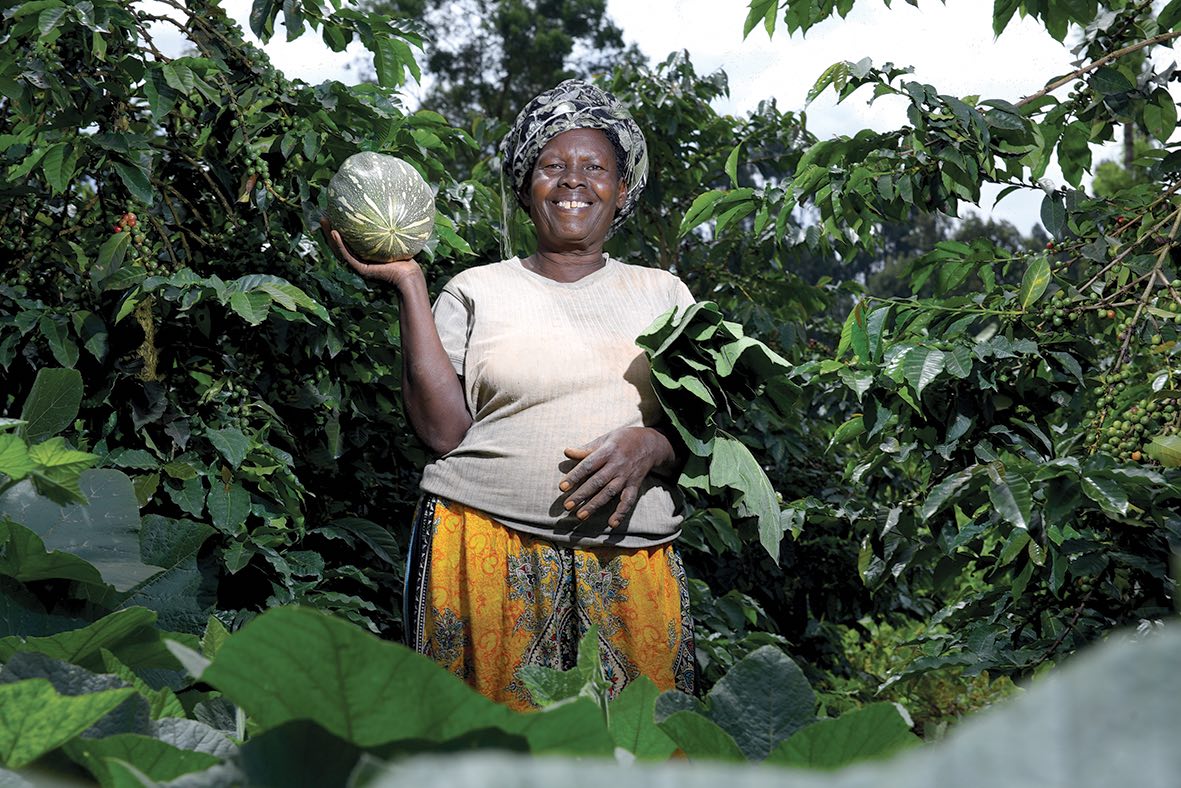
Promoting food security among smallholder farmers in East Africa
The Food Security through Improved resilience of Smallholder Coffee Farmers in Ethiopia and Kenya (FOSEK) project is a public-private partnership food security project, funded by the Dutch Government (FDOV) and implemented by Solidaridad alongside other consortium partners. The project seeks to improve food security in East Africa by increasing local agricultural production as well as enhance economic resilience and livelihood of smallholder coffee farmers in the region through several interrelated approaches.
Organization & governance
Developments
Supporting our work
Team members across various supportive departments navigated the challenges posed by Covid-19 with resilience, ingenuity and perseverance. As the pandemic continues, and when eventually it subsides, the results of this work will persist.
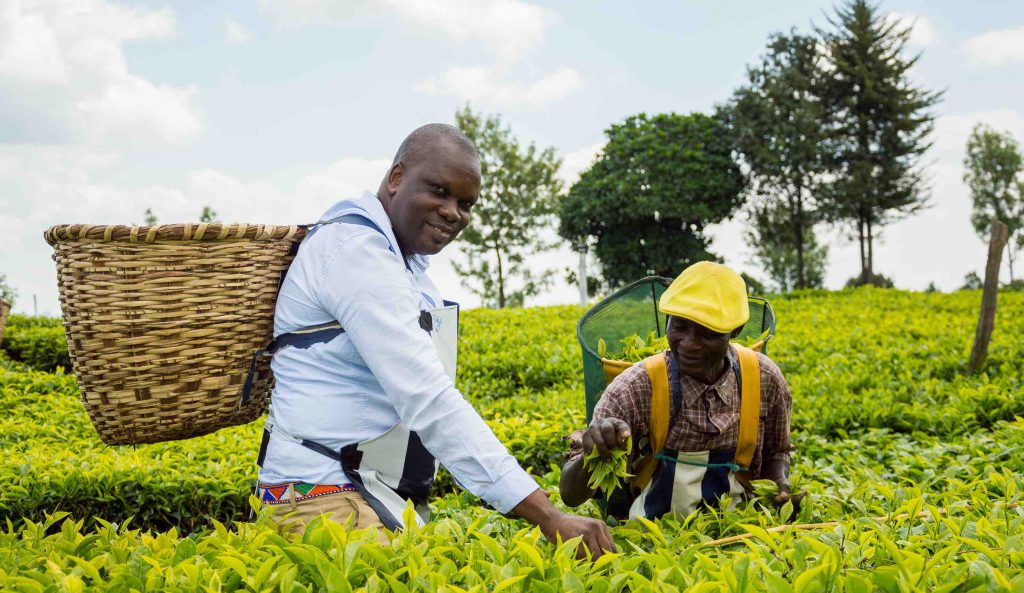
In 2019/2020, Solidaridad East & Central Africa rolled out a self-service Human Resource Management system to enhance the responsiveness and interaction of staff within the organisation, including information dissemination, time management, and HR analytics. Amid the COVID-19 pandemic, we fully digitized our recruitment, selection, and on-boarding processes, to reduce the spread of COVID-19 and attract high-value talent. To ensure employee wellness and performance during the pandemic, we also developed a working from home policy in line with the WHO and national/regional COVID-19 guidelines and protocols. As part of performance management, we sustained a participatory performance planning, feedback, and development approach resulting in improved employee engagement and performance. To develop the requisite competencies and capacities to foster organizational growth and development, we provided capacity development opportunities focused on building employee participation and leadership capabilities. Lastly, through our annual corporate social responsibility activities, Solidaridad rallied staff to support and participate in our country offices.
Cooperation and partnerships are critical to our work in sustainable supply chain development. We continuously seek dialogue and synergies within Solidaridad and with development partners, key stakeholders, and implementing partners in Cameroon, Democratic Republic of the Congo (DRC), Ethiopia, Kenya, Rwanda, Tanzania, and Uganda. To maximize our results in 2020, our in-country teams focused on building partnerships and consortiums with like-minded partners, including Busara, Crossroads International, Dalberg, KUZA, Tanager International, and others, to make advances in design and implementation of human-centred solutions. We also worked with knowledge and management learning partners, including African Management Institute and Sokoine University of Agriculture (Tanzania), to design demand-driven solutions for our project portfolio. Throughout the year, we maintained strong relationships with local and national governments in our countries of operation. We have sustained strategic engagement with local/national public sector authorities, Dutch Embassies in the region, Danish Embassy, Irish Embassy, European Union, Comic Relief, DANIDA, SIDA, GIZ, and USAID.
Continuous planning, monitoring, evaluation, and learning (PMEL) is a key consideration when designing and implementing sustainable and scalable impact in East and Central Africa. To ensure sound and seamless PMEL, foster accountability, and learning, we continued to develop and implement locally aligned PMEL plans for all projects. During the year, we conducted baseline studies for newly won projects with DANIDA (in Kenya) and the EU (in Tanzania). We also conducted end of term evaluations for the Dutch Ministry of Foreign Affairs funded Advocacy for Change (AfC) programme (in Kenya, Tanzania and Uganda). The learnings from the AfC programme will be leveraged in the implementation of the global Reclaim Sustainability! programme which commences in 2021. The Practice for Change (PfC) programme also largely concluded in 2020 and we conducted an impact survey to assess the efficacy and viability of the programme’s approaches. Findings of the survey informed the design of the PfC programme – Extension (2021-2022) which will focus on medium-scale coffee farmers as a key strategy for improving coffee production.
In 2020, Solidaridad East & Central Africa sustained efforts to enhance brand awareness and visibility through local and international media. To reach our diverse audiences, we utilized our social media platforms (i.e. Twitter, Facebook and LinkedIn) to drive strategic discussions on various thematic topics including, sustainable production and consumption, gender inclusivity, resilience, and COVID-19 prevention. Among our key highlights for 2020 include an article highlighting the potential of diversification in coffee farming, our focus on sustainable agriculture and organic farming, and other strategic thought leadership publications. Our regional staff have also contributed to discussions on global and local issues, such as, climate finance and food security, through local and vernacular TV and radio stations. In November 2020, our Managing Director, Rachel Wanyoike, participated in the TEDxLytteltonWomen Talks (Resetting Global and Local Value Chains) alongside other key panelists drawn from WeConnect International and Solidaridad Network.
No integrity issues were reported in the region.
Finance
Solidaridad East & Central Africa employs a wide range of fundraising and resource mobilization strategies to attract funding for sustainable development initiatives. Our multi-pronged approach encompasses strategies that focus on developing strong reputational capital and other internal capacities to support successful resource mobilization. In 2020, our targeted capacity-building efforts aimed to align the internal competencies with the organization’s regional growth agenda. As a result of our sustained resource mobilization efforts and partner engagement strategy we secured additional funding (approx. Euro 7,991,992) following successful bidding. The projects include European Union-funded LISEC in Ethiopia, Passport to Coffee Export and To certification and beyond in Tanzania and DANIDA funded TRACE project in Kenya among others. This growth in portfolio is attributed to the strategic leadership by management in planning, forecasting and budgeting.
To attract funding for climate and landscapes, our regional team prioritized the development of strategic climate financing propositions targeted at global climate financiers. In Kenya, the country’s designated National Designated Authority to the Green Climate Fund (GCF) granted us a letter of no objection for your sugarcane proposition which will facilitate access to funding and collaboration with accredited climate finance entities, such as UNDP and Kenya Commercial Bank (KCB). To enhance our resource mobilization, we will incorporate key lessons from past experiences, build strategic partnerships, enhance visibility, and align resource mobilization activities to support post COVID-19 recovery efforts among other emerging priorities, including ensuring the financial sustainability and legacy of our regional centre.
